
The Mars Volta - Televators - Video Streams
With the band currently in Australia at the tail end of festival dates, a new single is set for UK release on March the 1st.
The full track listing for the 2 commercially available formats is detailed below.
Cd
1. 'Televators' extended edit
2. 'Take the Veil Cerpin Taxt' (12:17) (xfm session)
3. 'Televators' Video
10" coloured vinyl
a. 'Televators' extended edit
b. 'Eriatarka-7:38' Live From the Electric Ballroom
The Mars Volta
De-Loused In The Comatorium
(GSL/Strummer/Universal)
Julio Venegas, an artist from El Paso, Texas, committed suicide in 1996. A free spirit and noted provocateur, "He was definitely someone who lived life to the fullest," remembers his friend, Cedric Bixler Zavala. "Toward the end, he acquired a really bad limp from being in a coma. He had tons of scars all over his body and some of his closer friends used to call him Frankenstein. He had big cut marks on his throat, welts and bruises and bumps, and his arm had been shriveled up from shooting up rat poison. He acquired so many scars it was like a walking map."
When Cedric sang for At The Drive-In, he wrote a lyric--'Embroglio' on 1996's Acrobatic Tenement--about Venegas, who had killed himself while that band were rehearsing. "I didn't feel it really did him justice," he continues, "I felt like a whole record should be dedicated to him."
That record is De-Loused In The Comatorium, the astonishing first album by The Mars Volta. De-Loused In The Comatorium is an iridescent, fearless, brain-busting hour of music, a fictionalized celebration of Julio Venegas' life. Based on a story written by Cedric, it
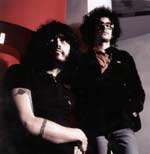
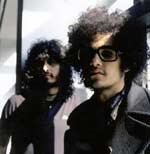
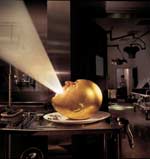
is a concept album in which the hero tries to commit suicide by overdosing on morphine. Instead of dying, he falls into a coma for a week, and experiences fantastic adventures in his dreams, elemental battles between the good and bad aspects of his conscience. At the end, he emerges from the coma, but chooses to die.
Ambitious stuff, plainly, but we’ve learned to expect as much from Cedricand Omar Rodriguez-Lopez. As Omar says, "We do have a really solid ideology,and part of that is to always grow and not have your ideas be the same as theywere last year." In At The Drive-In, Cedric's linguistic somersaults wererooted by straightforwardly anthemic post-hardcore. Now, the music is as imaginativeand uncompromising asthe words: De-Loused In The Comatorium consists of eight continually shiftingtracks which variously recall Led Zeppelin, Fugazi, Jane's Addiction, Can, Santana,Spirit, '70s Miles Davis, ambient Dub and even At The Drive-In, very occasionally.It's unapologetically progressive music: unencumbered by genre, unafraid of seriousness,reverberating with new ideas at every turn.
" I guess the concept of prog music is always frowned upon," says Cedric. "Itwas the dinosaur that the new kids wanted to take down. But I just hope peopledon’t picture some keyboard player in a cape trying to present this musicas Mars Volta On Ice. We have our feet a little bit more planted in the ground,there is a lot more punk aesthetic involved in what we do." For Cedric andOmar, The Mars Volta also represents an escape, a way of freeing themselves fromrigorous but limited music.
At the turn of the millennium, At The Drive-In's kinetic updating of punk hadmade them one of the most dynamic bands on the planet. Returning from a Europeantour in early 2001, however, Omar was unhappy; though not with corporate politicsand expectations, as often assumed. "I was bored with the music we wereplaying," he recalls. "We were just going to keep making the same records.It was nice to finally get the attention with At The Drive-In after six years,but it left us musically bankrupt, spiritually bankrupt."
Omar believes that "It's always important to throw a monkeywrench in yourown system, start from scratch and not be afraid to expose yourself." Tothat end, he told Cedric, his foil since childhood in bands like experimentaldub unit De Facto as well as ATDI, his new plan. "The idea was to have aband that was free of boxes, free of conceptual limitations. We both knew thatwould mean a lot of sacrifice, a lot of broken hearts and a lot of change inour life. But we were both willing to accept that so that the music would notsuffer."
They took the other members of ATDI to the park where they had begun, and formallysplit up the band. Omar then began recruiting the dextrous, expansive musiciansthey'd need for The Mars Volta: keyboardist Ikey Owens from The Long Beach DubAll-Stars and Jon Theodore, a drummer who'd played with Golden, as well as JeremyWard, their friend from De Facto, who would become the band's secret member,triggering samples and effects from offstage. "It was great to play withpeople who understood the vision," he continues, "though these influenceshave always been there with ATDI."
An EP Tremulant, on their own Gold Standard Laboratories label, and a seriesof extraordinary shows brought more allies: Rick Rubin signed on as producer;Flea helped out on bass; old friend John Frusciante, another of the Red Hot ChiliPeppers, added guitar to the outstanding 'Cicatriz';. And at the end of lastyear, The Mars Volta decamped to Rubin's place in Laurel Canyon, a haunted housewith a "strong presence", according to Omar, and began to record De-LousedIn The Comatorium. The result is this passionate, elaborate, relentlessly inventiveand utterly rewarding album, one of those rare records where musical innovationis matched, move for move, by a profound emotional pull. "I think it'lltake a couple of spins," admits Cedric, "but all my favorite recordsare like that."
The Mars Volta, it seems, demand more from music, and not unreasonably suspectthey aren't alone. "Our music is completely selfish, but we're not above-averagehuman beings," reckons Omar, modestly. "So if we're getting it, there'sgot to be other people who will too."

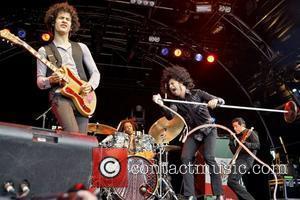
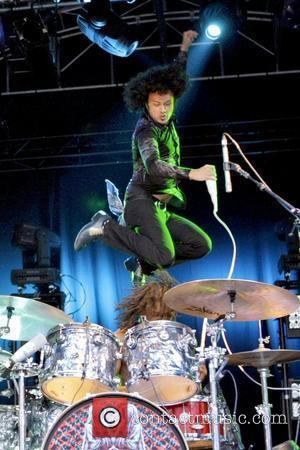


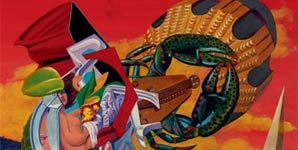
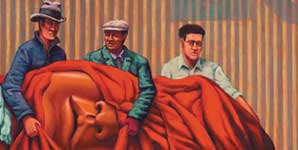

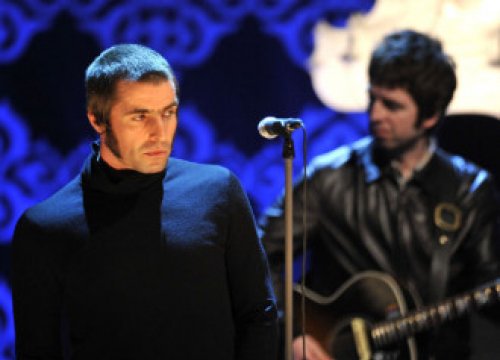





![Luke De-Sciscio talks to us about having the courage to be yourself, forgiving that which is outside of one's control and following whims [EXCLUSIVE] Luke De-Sciscio talks to us about having the courage to be yourself, forgiving that which is outside of one's control and following whims [EXCLUSIVE]](https://images.contactmusic.com/images/home/homepage/luke-de-sciscio-abof-a.jpg)
